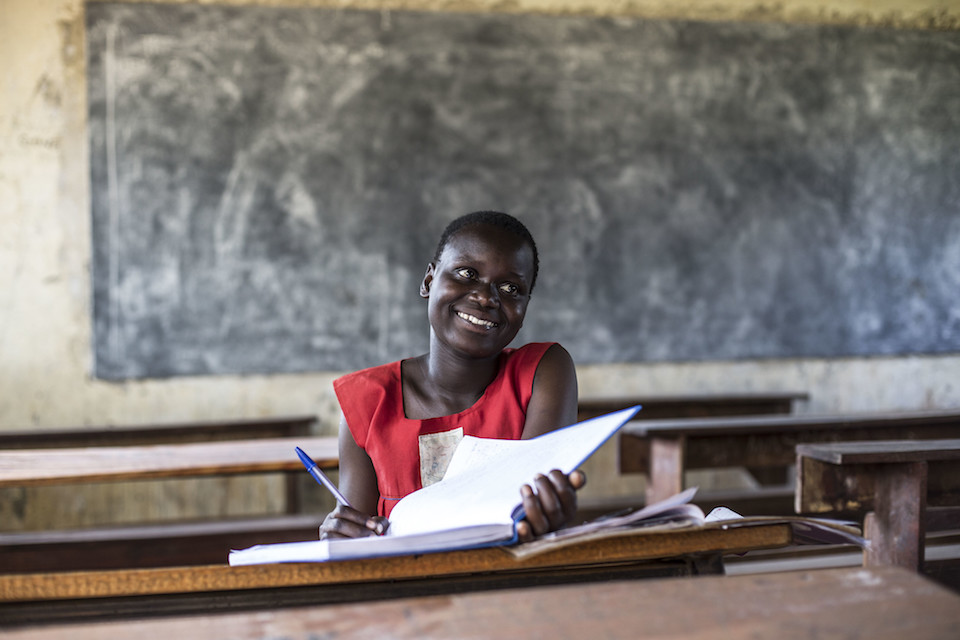Ensuring 12 years of quality education for children around the world
Statement by Sonia Farrey, UK Political Coordinator at the UN, at the Security Council open debate on children and armed conflict

Thank you Mr President, and first I would like to thank Niger for organising this debate to discuss such an important issue and mark the first ever International Day to Protect Education from Attack yesterday.
Thank you also to SRSG Gamba, Executive Director Fore and Dr Tsolakis for their contributions to this discussion. We extend our sincerest gratitude to Rimana for sharing her personal experiences and efforts to promote girls’ education. Your testimony attests to the importance of children’s participation in discussions concerning peace and security issues that concern them. And we very much hope that we still have the opportunity to hear from Hadiza and we very much support your work to promote education.
Education is a human right that plays a vital role in building stable communities founded on mutual respect, greater understanding and equal opportunity. And yet, increasing numbers of attacks against educational facilities gravely undermine this right. We are deeply concerned by the global increase in attacks and threats of attack on educational facilities, including in Burkina Faso and Mali. We welcome the Secretary-General’s decision to include Burkina Faso and Cameroon in next year’s annual report on Children and Armed Conflict. We call on all parties to conflict to respect and protect access to basic human rights, including quality education, and put in place measures to end and prevent attacks on educational facilities.
We know attacks on educational facilities disproportionately impact girls and are often intended to impede girls’ access to education. This is particularly troubling as ensuring access to quality education for women and girls at all levels, and including in situations of armed conflict, is key to eliminating gender inequality and discrimination. Girls already face significant challenges in the Sahel region and globally, including high levels of child marriage and sexual violence and harassment and attacks and threats of attack make them even more vulnerable to violations. Mass school closures globally because of the Covid-19 pandemic have also exacerbated these challenges, particularly for girls, whose access to education is even lower in crises.
This is why the United Kingdom calls for 12 years of quality education for all girls by 2030. The United Kingdom is harnessing the full breadth of our efforts - diplomatic, humanitarian, development and military - to protect education from attack. We are providing $117 million to Education Cannot Wait, the global fund for education in emergencies, $6.5 million of which we announced this year as an additional uplift to support Covid-19 specific emergency education in fragile contexts. Our commitment includes up to $39 million specifically earmarked to the Sahel and neighbouring countries, helping up to 100,000 children - 50 percent of whom are girls - receive the quality education they deserve.
The United Kingdom has also endorsed the Safe Schools Declaration and accompanying Guidelines for Protecting Schools and Universities for Military Use. These instruments recognise the power of safe, inclusive, quality education from childhood to adulthood to establish routine and purpose in chaos, supporting post-conflict reconstruction, reintegration and peace.
More than 100 Member States have recognised this and endorsed the Safe Schools Declaration as a key tool for protecting education in conflict. I would like to join others in congratulating St Vincent and the Grenadines for endorsing yesterday.
We know some Member States are concerned that the Declaration and Guidelines are inconsistent with or go beyond existing law. We conducted a full review and concluded that the Guidelines complement existing international humanitarian and human rights law, reflecting the best operational practice that the UK already follows and facilitates compliance by providing clear, flexible and practical guidance.
We applaud the tremendous efforts of Niger and Belgium to ensure reference in the Declaration is included in the presidential statement adopted today in spite of opposition, we strongly urge Member States who have not done so already to endorse the Declaration and commit to avoiding military use of educational facilities. We offer our full support and assistance to those who take these critical steps.
Finally, armed forces are essential to protecting students, teachers and educational facilities in conflict zones. The United Kingdom Armed Forces is one of the first in the world to have a dedicated policy on human security, integrating into military planning and operations the Safe Schools Declaration and Guidelines and relevant UN Security Council resolutions. We strongly urge Member States to integrate guidance on military use of educational facilities into military planning and operations.
Protecting education from attack is a strong investment in our collective global future. It’s time we take it seriously.
Thank you, Mr President.